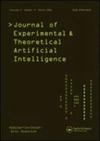在动态环境中进行计划和行动:识别和避免危险情况
IF 1.7
4区 计算机科学
Q3 COMPUTER SCIENCE, ARTIFICIAL INTELLIGENCE
Journal of Experimental & Theoretical Artificial Intelligence
Pub Date : 2021-06-30
DOI:10.1080/0952813X.2021.1938697
引用次数: 0
摘要
在动态环境中,外部事件可能在智能体不同意的情况下发生并改变环境。因此,代理的计划可能会被打乱,更糟糕的是,代理可能最终处于死胡同状态,不再能够实现它们的目标。因此,代理应该在计划执行期间监视环境,如果遇到危险情况,他们应该(反应性地)采取行动以逃离它。本文引入了智能体在动态环境中执行计划时可能遇到的危险状态的概念。提出了一种计算一系列动作后状态危险下界的方法。这种方法被用来确定代理人必须开始采取行动以避免危险的情况。我们提出了两种类型的这样的行为-纯反应和主动(消除危险的来源)。我们在两个场景中执行并测试了危险状态下的规划概念——一个是简单的rpg类游戏《黑暗地牢》,另一个是受改革电子游戏启发的平台游戏。结果表明,危险状态下的推理比单纯的计划或基于规则的技术获得了更好的成功率(达到目标)。本文章由计算机程序翻译,如有差异,请以英文原文为准。
Planning and acting in dynamic environments: identifying and avoiding dangerous situations
ABSTRACT In dynamic environments, external events might occur and modify the environment without consent of intelligent agents. Plans of the agents might hence be disrupted and, worse, the agents might end up in dead-end states and no longer be able to achieve their goals. Hence, the agents should monitor the environment during plan execution and if they encounter a dangerous situation they should (reactively) act to escape from it. In this paper, we introduce the notion of dangerous states that the agent might encounter during its plan execution in dynamic environments. We present a method for computing lower bound of dangerousness of a state after applying a sequence of actions. That method is leveraged in identifying situations in which the agent has to start acting to avoid danger. We present two types of such behaviour – purely reactive and proactive (eliminating the source of danger). The introduced concepts for planning with dangerous states are implemented and tested in two scenarios – a simple RPG-like game, called Dark Dungeon, and a platform game inspired by the Perestroika video game. The results show that reasoning with dangerous states achieves better success rate (reaching the goals) than naive planning or rule-based techniques.
求助全文
通过发布文献求助,成功后即可免费获取论文全文。
去求助
来源期刊
CiteScore
6.10
自引率
4.50%
发文量
89
审稿时长
>12 weeks
期刊介绍:
Journal of Experimental & Theoretical Artificial Intelligence (JETAI) is a world leading journal dedicated to publishing high quality, rigorously reviewed, original papers in artificial intelligence (AI) research.
The journal features work in all subfields of AI research and accepts both theoretical and applied research. Topics covered include, but are not limited to, the following:
• cognitive science
• games
• learning
• knowledge representation
• memory and neural system modelling
• perception
• problem-solving

 求助内容:
求助内容: 应助结果提醒方式:
应助结果提醒方式:


